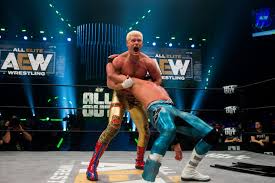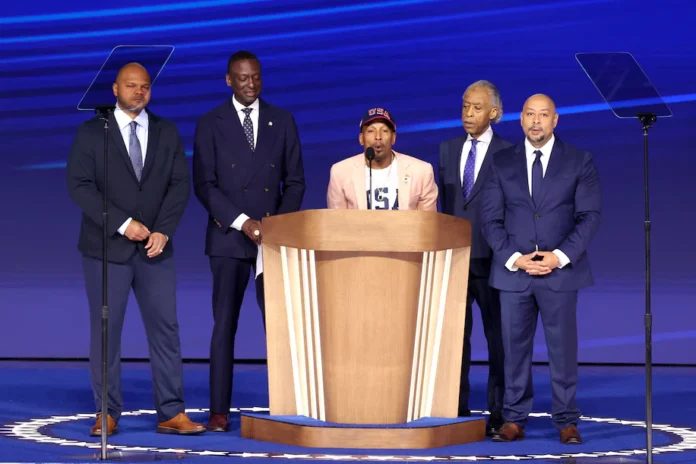In her frantic effort to woo black men for votes, Kamala Harris has made some promises that sound good but will not deliver over the long term.
First, according to Bloomberg, Harris’ campaign promise, made about two weeks before the election, was “to support a regulatory framework for cryptocurrency, to give more investment certainty to the 20% of Black Americans who own—or have owned—digital assets.”
Second, she vowed to “work with Congress to legalize recreational marijuana and make sure Black men can create businesses and access jobs in a burgeoning cannabis industry.”
The fundamental problem with both of these promises is that crypto and marijuana are not the keys to building long-term wealth for anyone, let alone Black males. 
In the same speech in which Harris outlined these goals, she made a more substantive proposal to one million applicants, including Black entrepreneurs and others, for loans to help build new businesses. According to a campaign outline, her proposals would provide “fully forgivable” loans up to $20,000, Bloomberg reported. 
So here are three proposals to Black males: two with abysmal long-term growth prospects and one with a path to building real wealth.
In sum, the three proposals try to address the stratification among Black males who want the fast buck return of crypto and the action of selling pot from a storefront. The problem is that selling pot on a retail level may look sharp on a business card. Still, competition from other pot retailers is akin to opening a coffee shop in a neighborhood saturated with Starbucks.
Offering pot shop retail outlets to disadvantaged, underserved, or marginalized groups seems to be a common political gimmick. Women have been provided preferred cannabis licenses, but their success is still to be determined. Across the U.S., 19.9% of cannabis businesses are owned by women, according to a report by MJ Biz Daily. Since it requires more money to enter this business, women cannabis owners are having a hard time raising capital, often being offered 30% to 40% less than similar male-led companies, according to a report in Yahoo Finance.
As for the all-important profitability metric, “the industry is hurting,” and only 42% of respondents are turning a profit,” according to a February 2022 report from Yahoo Finance.
Worse, the same study found that “women and non-white respondents are faring much worse than white, male respondents, with 45.6% of male respondents indicating they were turning a profit, versus 37.5% of female respondents,” according to the survey.
The survey also notes that from a demographic perspective, the data show that the further an operator is from being white and male, the less likely it is to be profitable in the cannabis market.
As more states legalize or decriminalize pot, the demand has tapered off after the novelty wears off.
So, while offering cannabis licenses to Black men may smack of a fun Cheech and Chong business atmosphere, being a commodity retailer is tough. First, cannabis stores have a finite number of state-licensed, regulated suppliers they can use, and this can put a cap on price competition.
At first glance, Harris and Trump don’t have much to offer Black men. But Black men should remember that Trump wanted the state to adopt the death penalty for the Central Park Five, who were wrongly accused of rape in Central Park. Trump has also called African nations cesspools, and he has no affinity for Blacks unless they are athletes who play golf on his courses. If Black men think Trump will single them out for any favors, they should look at his record.
Perpetuating the Crypto Scam
Crypto came on the scene as a solution that lacked a problem. It was never accepted as a common currency, and its credibility was quickly diminished by look-alikes to Bitcoin. This was quickly followed by an avalanche of frauds and scandals, from bogus crypto exchanges to scammers at the grassroots and executive suite levels.
It remains a mystery why some legitimate financial reporters and investment firms have ever embraced crypto, aside from the esoteric benefits of blockchain technology, which have nothing to do with driving the price of crypto.
About 15 years after it emerged, crypto has been propelled by hype that it is the gateway to a “new economy” or a way to rebel against the establishment. The scam is that crypto has nothing in common with investing, according to any definition.
Crypto does not pay a dividend; it has no fundamentals that drive its price; profits can only be realized when crypto is sold; and crypto’s price is only driven upward when there are more buyers than sellers.
Crypto cannot be used to get a mortgage unless it is liquidated, and it cannot be used to buy groceries.
The crypto hype is staggering, but it is useful if you want to launder money, evade taxes, pay for gambling, destabilize the Federal Reserve, or get bragging rights at local clubs.
Politicians like Harris and Trump have both made pitches to crypto owners, but their promises are vague since crypto has little to do with anything except reducing regulations that affect its issuance and trading. Musk loves crypto, not because he needs a new value medium, but because it is anti-regulation and anti-government. The scam is that you have to believe Musk and Trump have your best interests at heart, which is a sign of insanity.
So what does this have to do with getting the Black male vote for Harris?
Not much. Harris and Trump offered a review of regulations that would “protect” crypto owners from future threats. The candidates don’t say what those threats are, but the biggest threats to crypto are from inside its industry.
The problem is that Harris’ appeal to black males suffers from something other than crypto and offering pot licenses. The media and academics report that Black men, like many of their Caucasian counterparts, are suffering from an identity crisis.
For young males without a college education, the threats of automation, artificial intelligence, reverse discrimination from affirmative action, female and white privilege, and the old complaint that “they” are holding me back can provide some valid reasons. But many of these obstacles are not new, nor are they deal-breakers.
Many white and Black young men are perplexed about their identities. But if they believe a criminal like Trump cares about their problems, they are delusional. It is alarming these men can be so confused, but that is a much bigger problem than Harris can solve.











